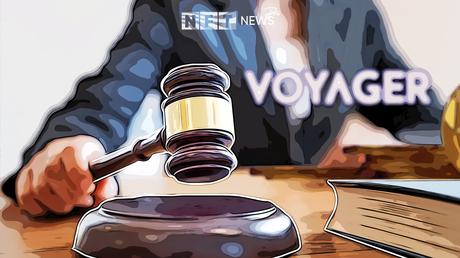
In New York, where the company Voyager Digital Ltd. is in bankruptcy, the process of selling off its assets has begun. The auction is taking place at the office of Moelis & Company in the middle of Manhattan.
If necessary, the auction can go on past Tuesday. At a hearing on September 29, the winner or winners of the bid or bids will be made public.
A Voyager representative said that it’s possible that the results could be made public sooner.
A court document filed in the US bankruptcy court for the Southern District of New York says that Voyager’s investment bank, Moelis & Company, will hold an auction of the company’s assets on September 13.
No one knows yet how many people are interested in buying. Before the end of 2017, the company said that 88 groups had shown interest in working with them, and 22 of those groups were already in talks.
At the auction, customers hoped to get their frozen funds unfrozen.
Voyager froze its customers’ accounts because it was going out of business. Customers of Voyager whose savings were taken by the company are hoping to get some of their money back through this auction.
Customers of Voyager haven’t been able to get their money since the beginning of July, when the lender stopped withdrawals because the cryptocurrency market was going down.
In exchange for Voyager’s customer database, the well-known cryptocurrency exchange FTX offered $15 million in cash and an amount that has not been made public. The crew of Voyager called it a “lowball bid.”
Voyager, which had its main office in New York City but was traded on the stock market in Toronto, went bankrupt in July.
Because so many people wanted to withdraw money, the exchange had to do this.
Voyager’s investments froze and, in some cases, even lost value because of the widespread crypto meltdown.
Voyager says things that can be interpreted in different ways.
Even though Voyager wasn’t clear, the crypto lender’s marketing policies told customers that their cash deposits were safe with the FDIC (FDIC).
In particular, consumers have become more skeptical because of this. Because of this, many clients thought, wrongly, that their cryptocurrency holdings were safe.
Even though the platform was linked to the FDIC-insured Metropolitan Commercial Bank, it turned out that the insurance didn’t cover the customers.
The Federal Deposit Insurance Corporation is one of the two groups that are required to offer deposit insurance to customers of American banks. The other company is called the National Credit Union Administration, and it is in charge of regulating credit unions and making sure they have insurance.
A customer who lost $1 million on the Voyager platform was said to have put most of her money in an FDIC-insured stablecoin.
Leave this field empty if you're human: